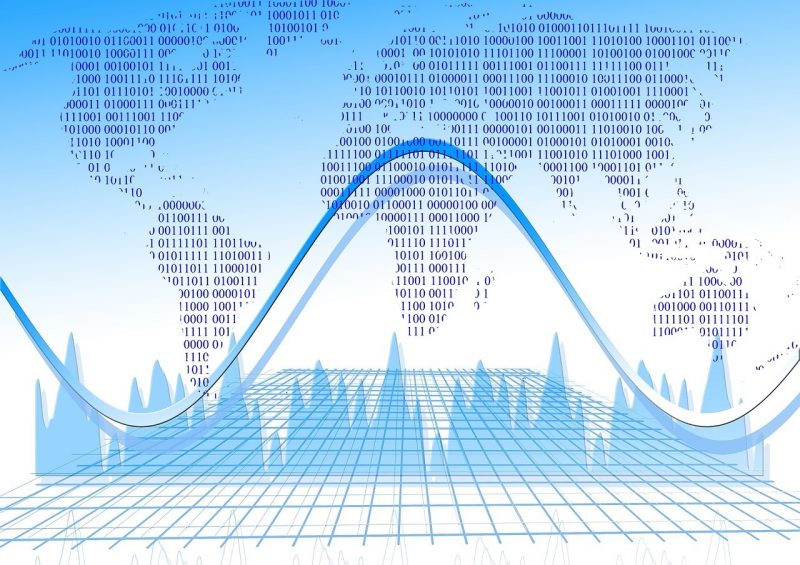In the last few years, blockchain, the distributed ledger technology behind Bitcoin, has taken the world by a storm. Apart from threatening to disrupt the concept of money as we know it, it is proving to revolutionize how industries approach business.
One area that is experiencing major disruptions is the accounting industry. According to analysts, the future of the accounting profession and the financial industry in general lies in the blockchain technology. What this means is that financial accountants and investment professionals may soon find themselves having to learn new things to remain relevant.
As the disruptive power continues to build force, the top accounting and investment firms are not lying down waiting for this to happen. They are putting up distributed ledger research and development laboratories to explore how this disruptive technology would affect their industry and clients. The likes of Delloitte, PWC, KMPG, and EY are already working on blockchain driven strategies for competitive advantage.
What becomes clear is that the quarterly exercise, where teams of accountants and auditors review past transaction samples in order to make judgments regarding past events, will become antiquated. The disruption will not merely affect accountants and auditors but also the investment profession whose structure relies on officially audited financial figures. The entire investment cycle of stock research and brokerage rests on these data releases.
The analysts study the data and create current projections regarding what they perceive a company per-share earnings would be each quarter. Investors then re-calibrate share prices positively or negatively, which means the quarterly numbers are the center upon which everything equity revolves.
A similar position affects mutual fund, hedge fund, and pension fund managers. Their compensation revolves on how well their portfolios perform each quarter compared to the broader market. Government bond traders too base their decisions on audited financial information regarding economic indicators on GDP growth, unemployment, and inflation estimates.
The Profession Looking At Itself
Blockchain technology power will revolutionize workflows because the technology is unlike anything the accounting and audit industry has seen before.
This means platforms the industry use will require profound changes. Blockchain is an avenue to automate accounting processes incredibly with cascades of new applications coming up built on top of one another. The result will be the creation of new and unprecedented services.
What is becoming clear is that accountants will have to upgrade their understanding of blockchain functions and features that make client information more secure and precise. According to one of the year 2018 predictions, blockchain is going to do away with ninety-five to ninety-nine percent of the current standard checklist items auditors have to walk through.
New services will come up when clients who seek auditing and accounting services start to apply blockchain technology in their lives.
Could Augur Be The Breakout Coin Of 2018?
Think of a situation where you need to sign up into something. The application feature demands personal information you do not wish to share. On many websites, in front of bank counters, or at airports, everyone wants you to prove you are who you are.
Accounting and auditing software creators are working on blockchain technology that verifies and secures your digital identity such that you feel in control and confident.
Blockchain essentially involves transferring asset ownership while maintaining accurate information. This means it will have a profound impact on the industry.
As advisors, accountants, and auditors, the main concern is measuring and communicating the implications of the data the technology makes available. Therefore, the technology will bring higher clarity over asset ownership while greatly enhancing efficiency.
Professionals within the industry have concerns that arise from the fear of losing their jobs. This must not be something to worry about. Time and time again, we have seen technology developments that have resulted in job shits.
These blockchain technologies will not necessary lead to the loss of jobs and roles but rather an adaption to what the roles evolve into. It brings excitement to the industry and opportunities to grown and learn. Within a few years, those manual tasks that do not need high skills will be forgotten and new more fulfilling practices will come into being.
To put it in another way, blockchain ensures every data entry in a chain remains true. Changing the manner in which information is logged in and stored creates an opportunity for new platforms and applications to come into the market. Therefore, jobs will not actually disappear but rather, they will shift.
New services will come up due to new demands. This means the industry simply becomes unrecognizable once blockchain technology becomes dominant.
Conclusion
Think of several companies buying furniture. Each company will decide to treat their purchase differently either as an asset or an operating expense. Therefore, with each purchase comes a judgment.
Even as blockchain technology creates disruption in the accounting and auditing industry, an accountant will still need to make a judgment call and an auditor will still have to verify that the judgment call was correct.
Furthermore, blockchain is prone to manipulation. Take the Japanese cryptocurrency exchange losses, for instance, where more than $500 million was lost to hackers. Not only did the market loose the NEM coins but also Coincheck had to restrict withdrawals of every currency cryptocurrency, except bitcoin.
This means blockchain technology has infallible features, blind spots, and weak points. Auditors and accountants will eventually have to account for and verify the figures.
What auditors need to do is understand this new technology. This is not because it will wipe them out but in order for them to audit how their clients will use the technology.


